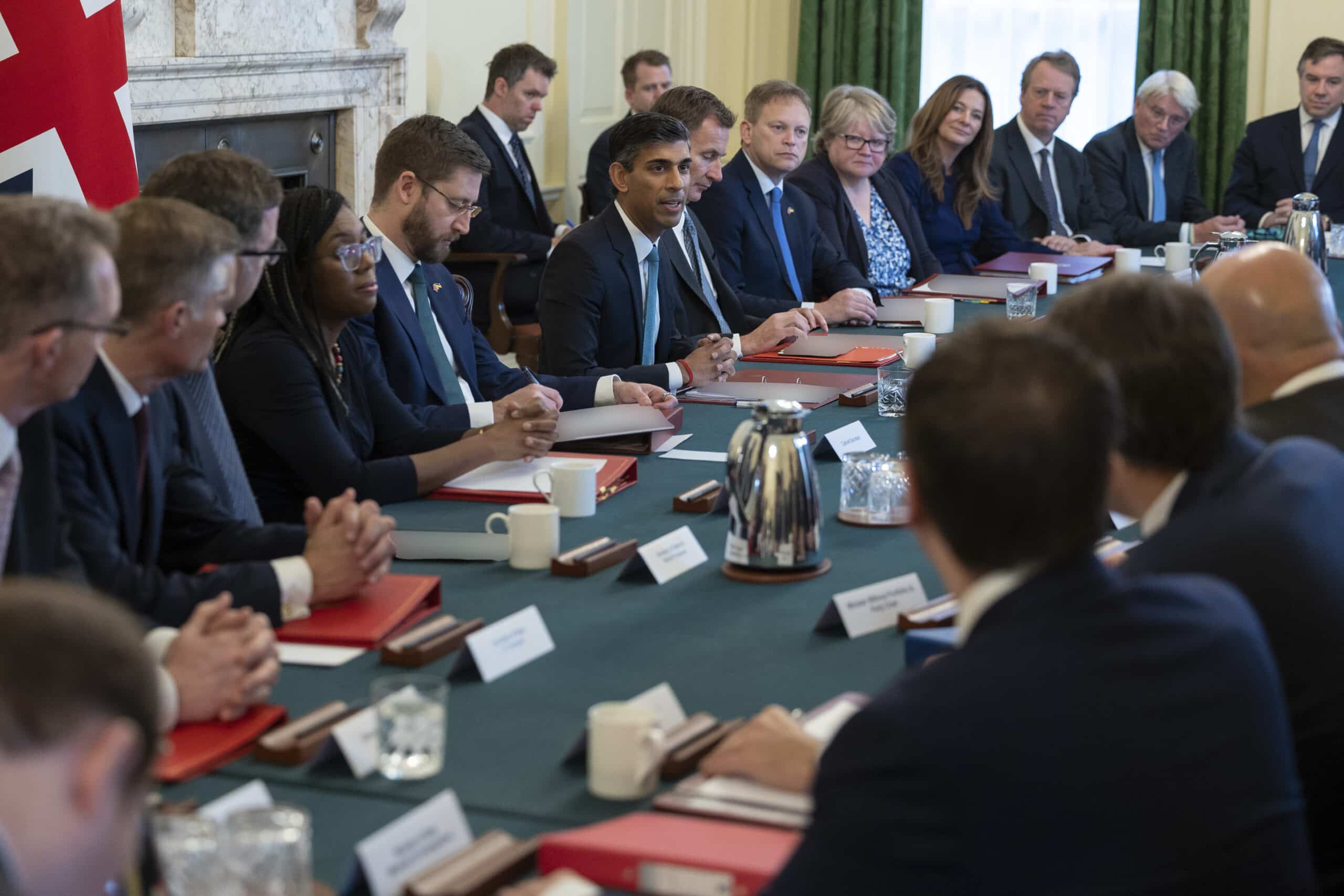 BBC News
BBC NewsBorrowing was £17.4bn last month, the second highest October figure since monthly records began in 1993.

Finito World
We know that Rishi Sunak thinks about mathematics a lot because he has told us this is the case. This is a prime minister who, as the almost clicheic saying goes, ‘inherited a mess’, and is now beginning to think about what his priorities going forward might be.
He has sorted out that mess to some extent. Certainly, he has shown he can handle the work – a low bar perhaps, but one which his predecessor Liz Truss never managed to clear. He also has some victories to his name: the Windsor Accords should in time spark a return to power-sharing in Northern Ireland; the AUKUS submarine deal shows he is capable of operating on the world stage; and most importantly, he has begun to get control of the public finances, though inflation remains stubbornly high and his decision to promise to cut it in half was an own goal: in politics, never promise something which isn’t in your control to deliver.
None of his achievement are showy, and all of his progress is incremental. All is not lost: due to a low energy opponent in the shape of Sir Keir Starmer it may enough to put the Conservatives in touching distance of a 1992-style election victory in next year’s General Election, though that remains a long shot. What’s needed to pull off victory is leadership, and direction. So far, we have the ‘maths to 18’ policy, stipulating that all students should have some maths education right up until the end of secondary school.
It is well-intentioned, and the prime minister has a point. Many young people do indeed, as the prime minister said in his speech at the start of the year, leave university without a basic understanding of finances, and experience difficulty when it comes to negotiating their mortgage deals.
But in framing the question of mathematics in such limited terms he has made the matter seem dull, thereby making it hard to bring people along, and earning derision in some quarters for a ‘cookie cutter’ approach. A tax return is a good thing to have sent in on time, but it doesn’t speak to the human heart. It was Albert Einstein who said: “Imagination is more important than knowledge. Knowledge is limited. Imagination encircles the world.”
In politics it is best never to express an intention aloud without having fleshed out the consequences of choosing to pursue it. In rushing into the debate without a full appreciation of how more maths teachers will be delivered – and doing so during such a febrile atmosphere of teachers’ strikes – Sunak has raised more questions than he has answered, leading to a series of jokes about not having done his sums.
This isn’t to say the policy is dead. It simply needs to be recalibrated and, of great importance to this magazine, tethered properly to the realities of the jobs market. Sunak would do well to read the Institute of Engineering and Technology’s report Engineering Kids Futures. This highlights a shortfall of 173,000 workers in the so-called STEM (science, technology, engineering and mathematics) sectors. The cost to the UK economy of this shortfall is projected at £1.5 billion.
It might be that the economic cost is the least of it. Children need wonderment and inspiration; they need to feel early in life the joy of creating things – and also to learn from the experience of wrestling with the difficulty of making things work.
Of course, mathematics isn’t separate from the importance of engineering; an engineer who can’t count won’t get very far. But maths isn’t a siloed subject – quite the opposite. Sunak now has an opportunity to reimagine ‘Maths to 18’, by tethering it to employability. How might it transform our children’s careers outlook?
While he’s about that he might go further. A glance at the sector output of the UK economy, ought to persuade the prime minister to think not just in terms of STEM but also STEAM.
The ‘A’ stands for art, of course, a word which can still seem wishy-washy to the conservative mentality – so perhaps we might be thinking in terms of STEMCI – where the CI stands for Creative Industries.
That ought to get recalcitrant Conservative minds to pay attention: the creative sector is big business. Year on year, the sector continues to boom – and that’s in spite of the restrictions placed on many businesses during the Covid-19 pandemic. For instance, according to the Department for Culture, Media and Sport, the creative industries grew by 6.9 per cent in September 2022 compared with the same month in 2021. Growth across the UK economy as a whole was 1.2% over the same period.
Perhaps we need to think not just of Einstein’s contributions to maths and science, but to remember his violin-playing. A new generation of renaissance men and women is possible if Sunak gets this right.
It also happens to tally with what he needs to do politically. He has made a good start and is probably the best-suited to the role of any of the occupants of 10 Downing Street since David Cameron. But he is yet to make anything approaching a powerful speech. And if he can’t make one about maths, he needs to think again.